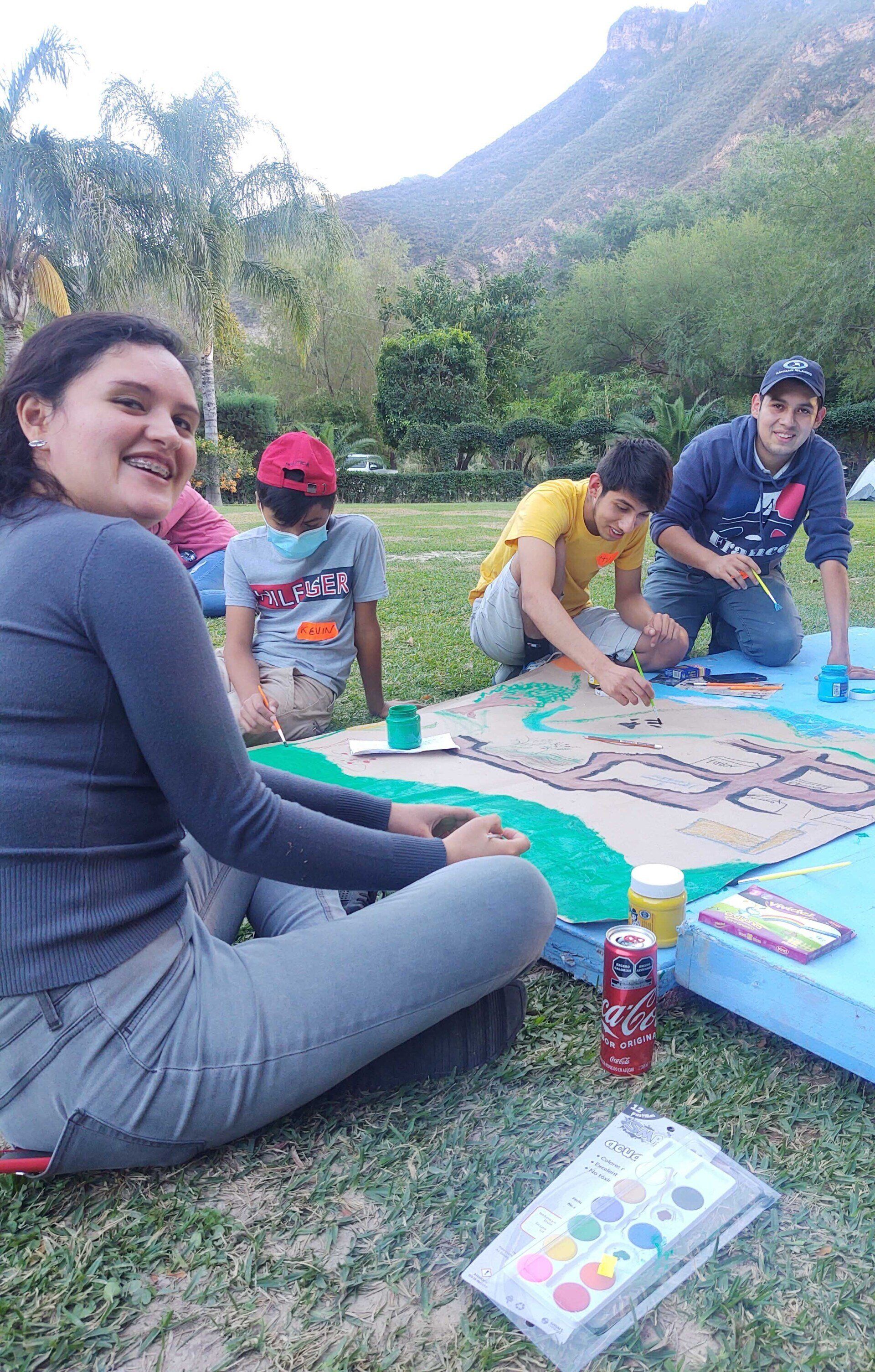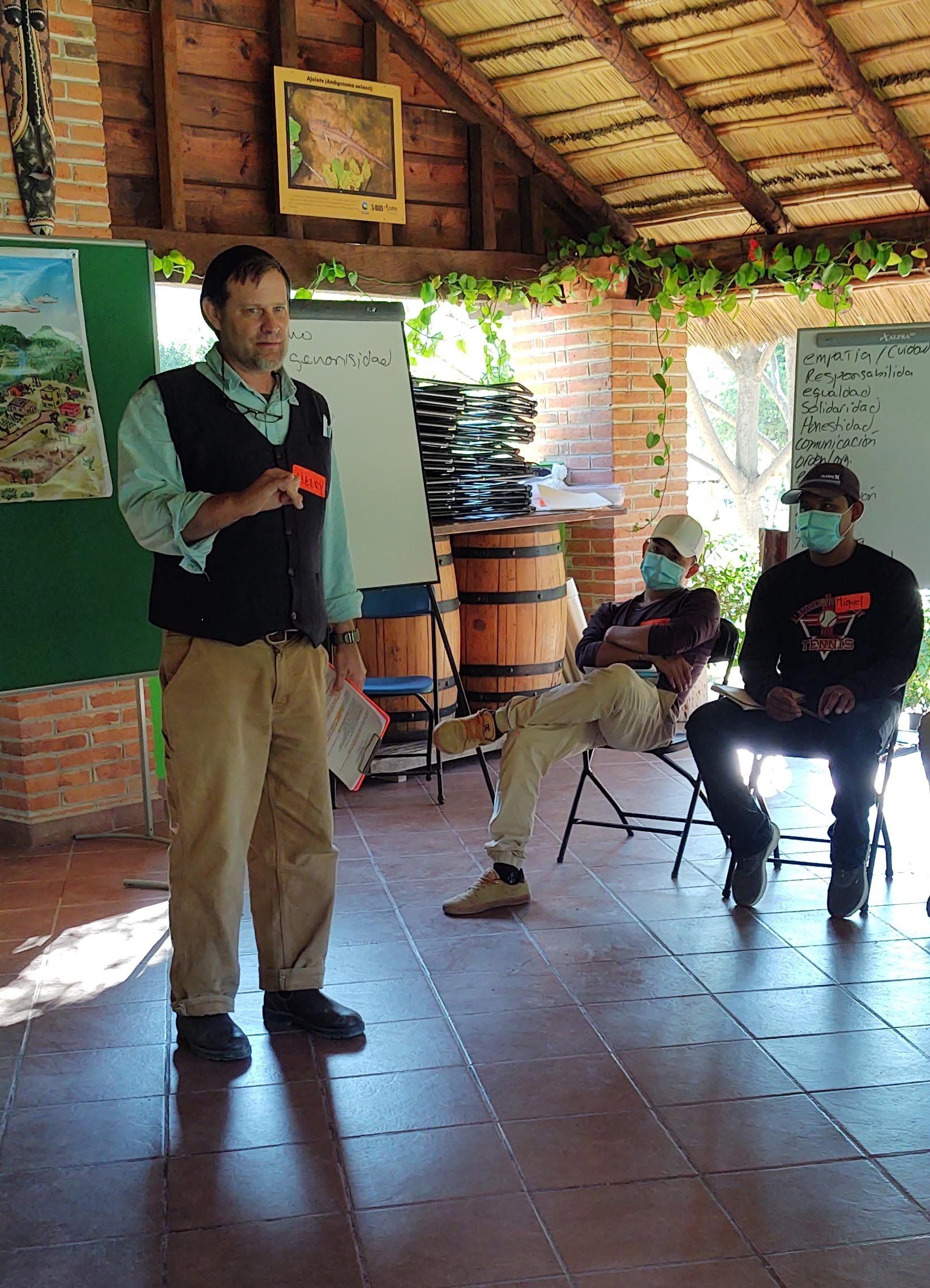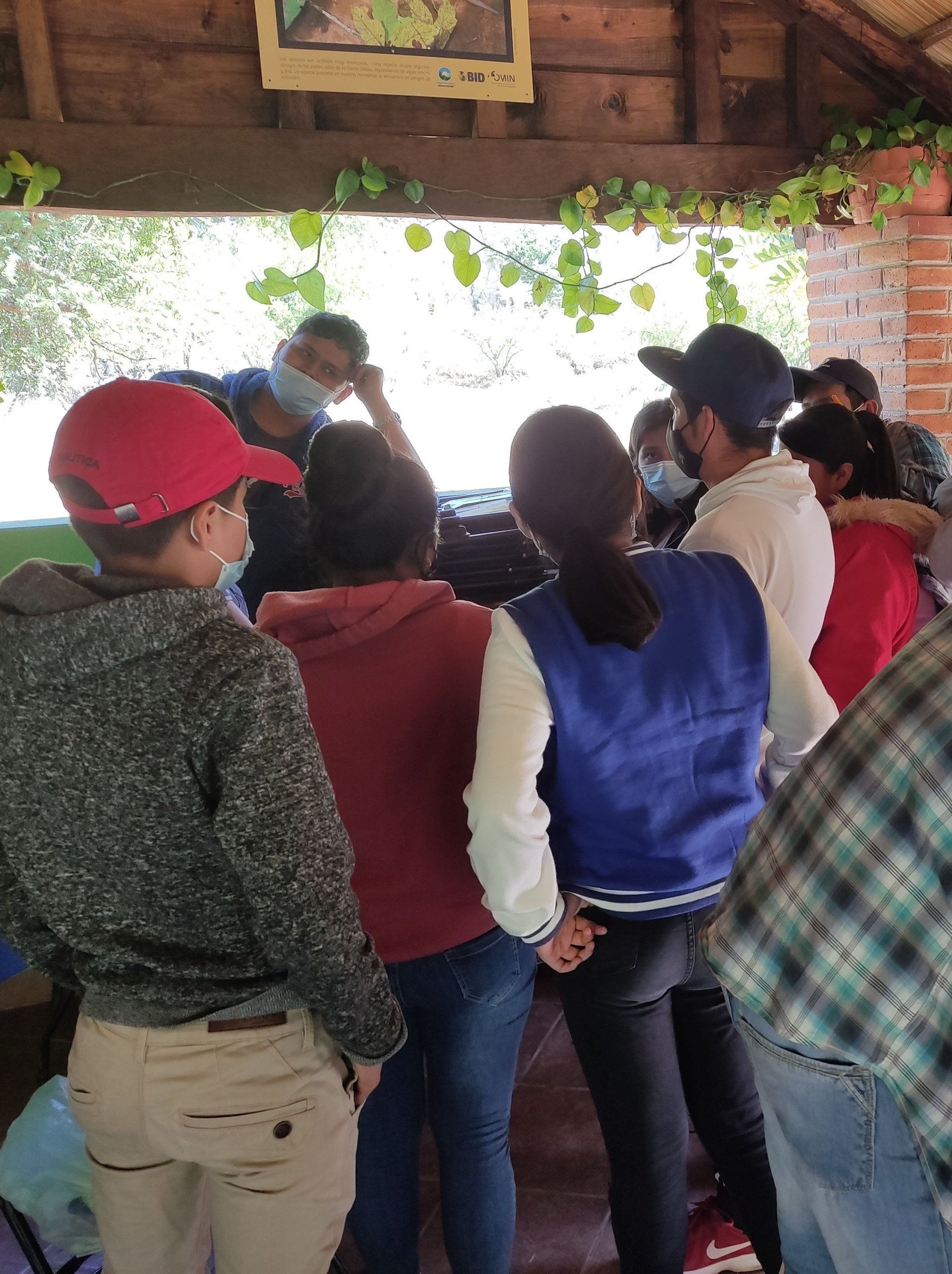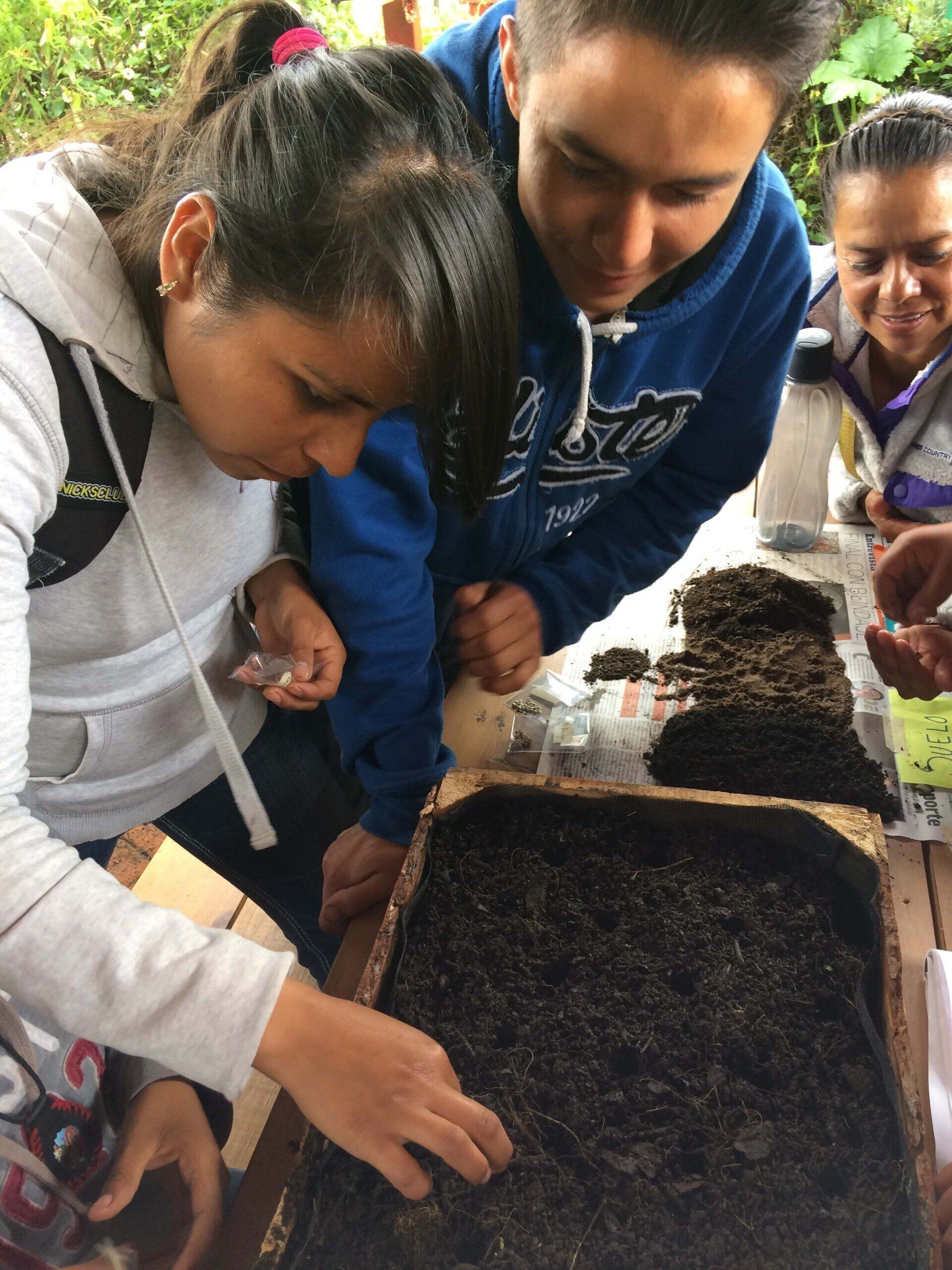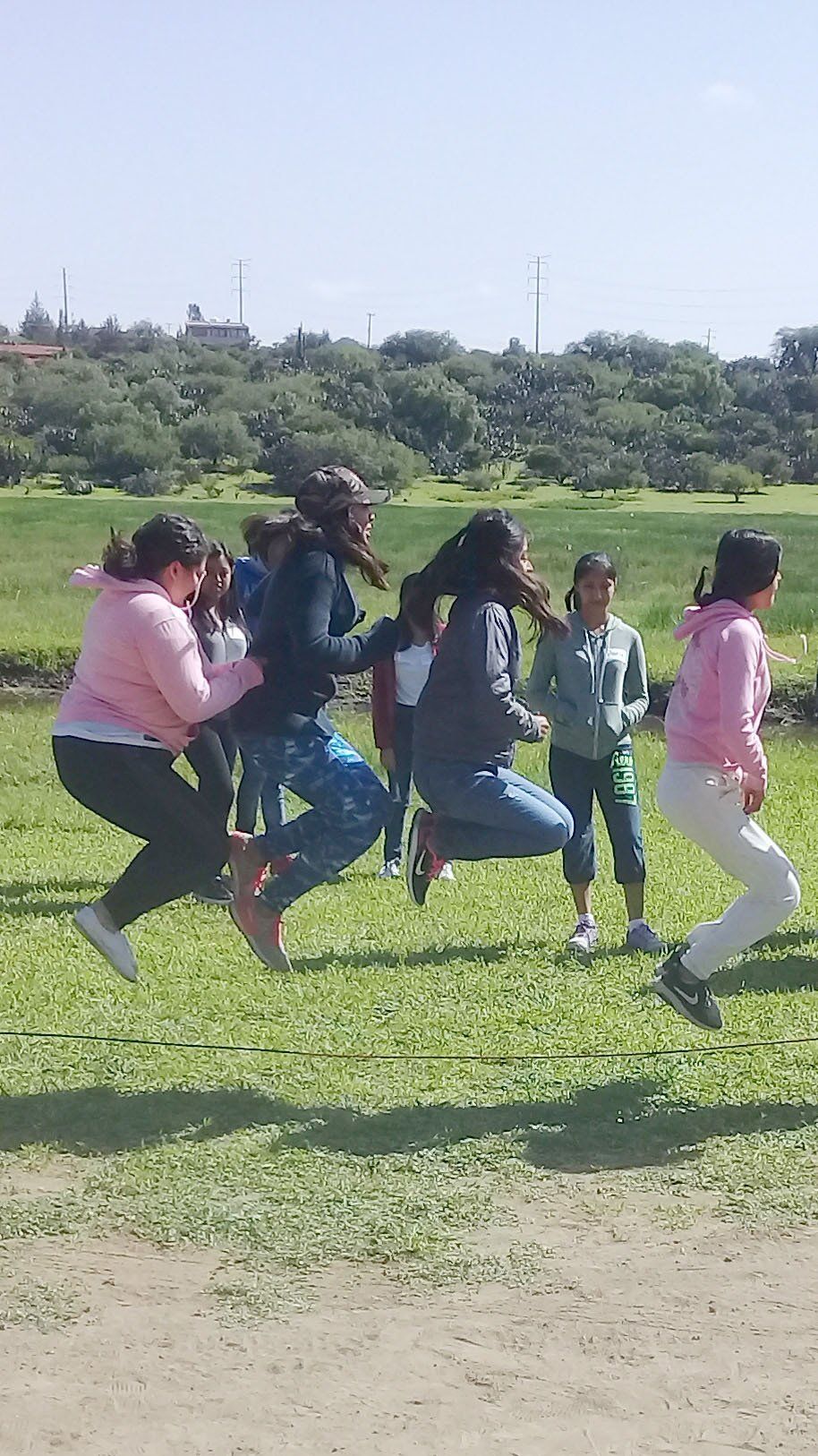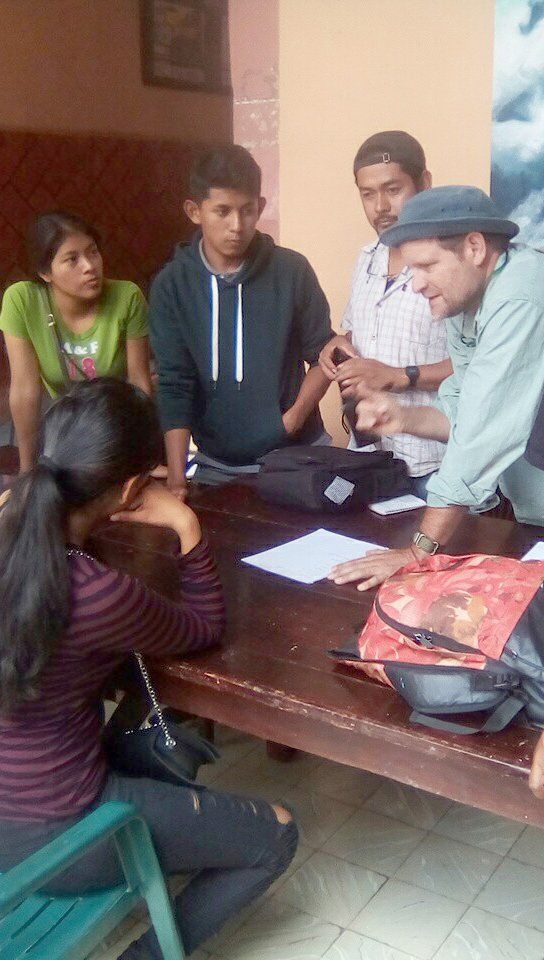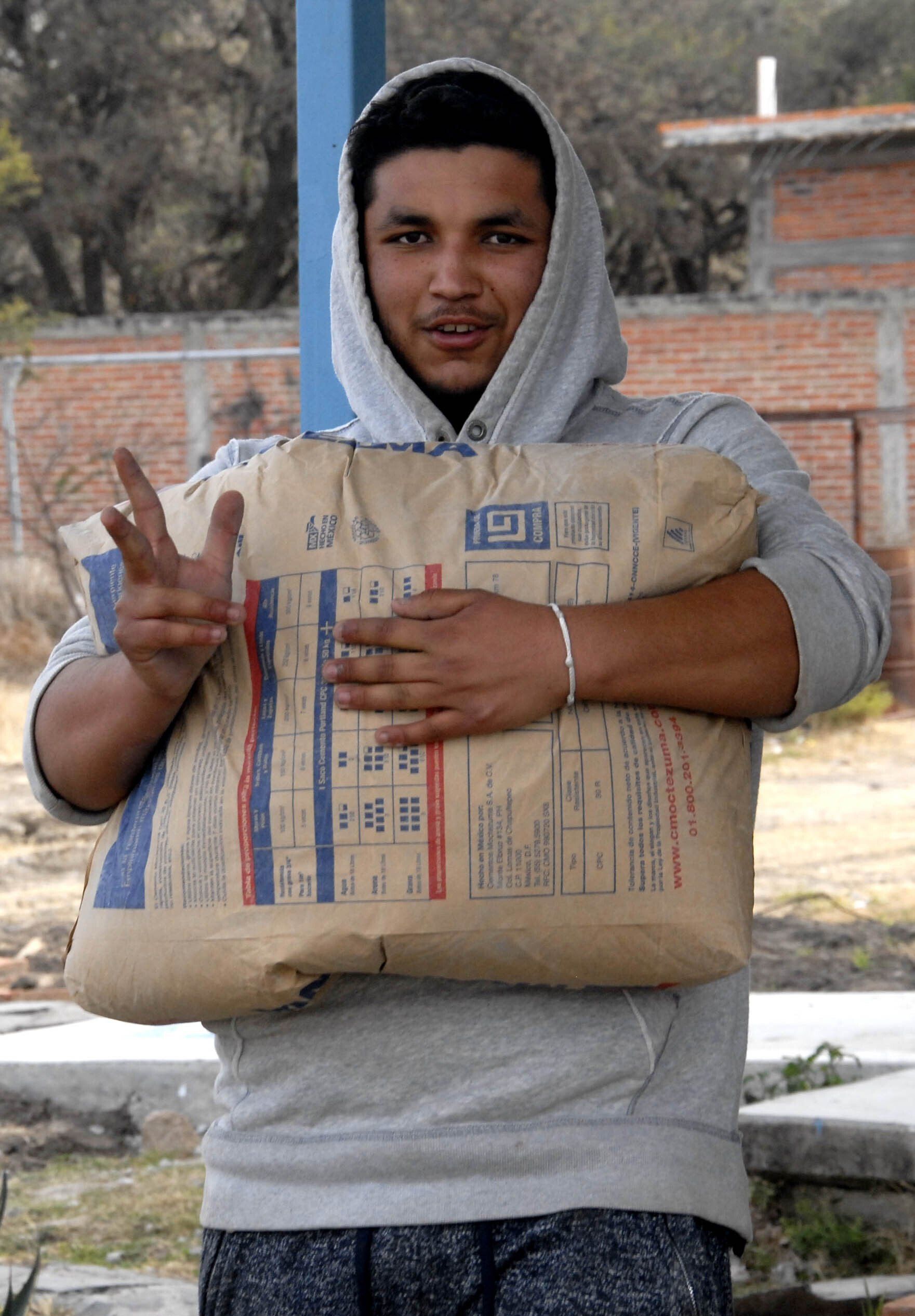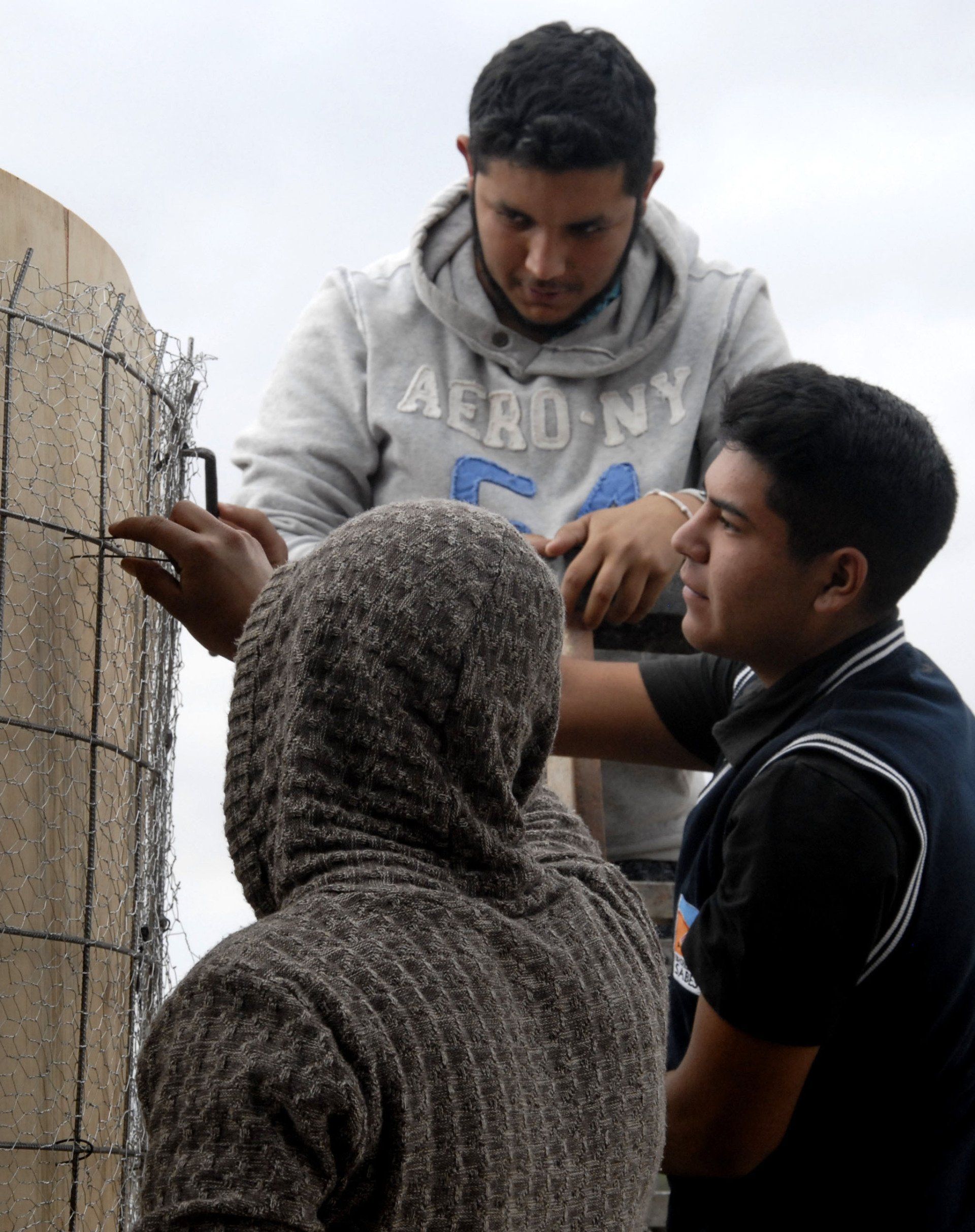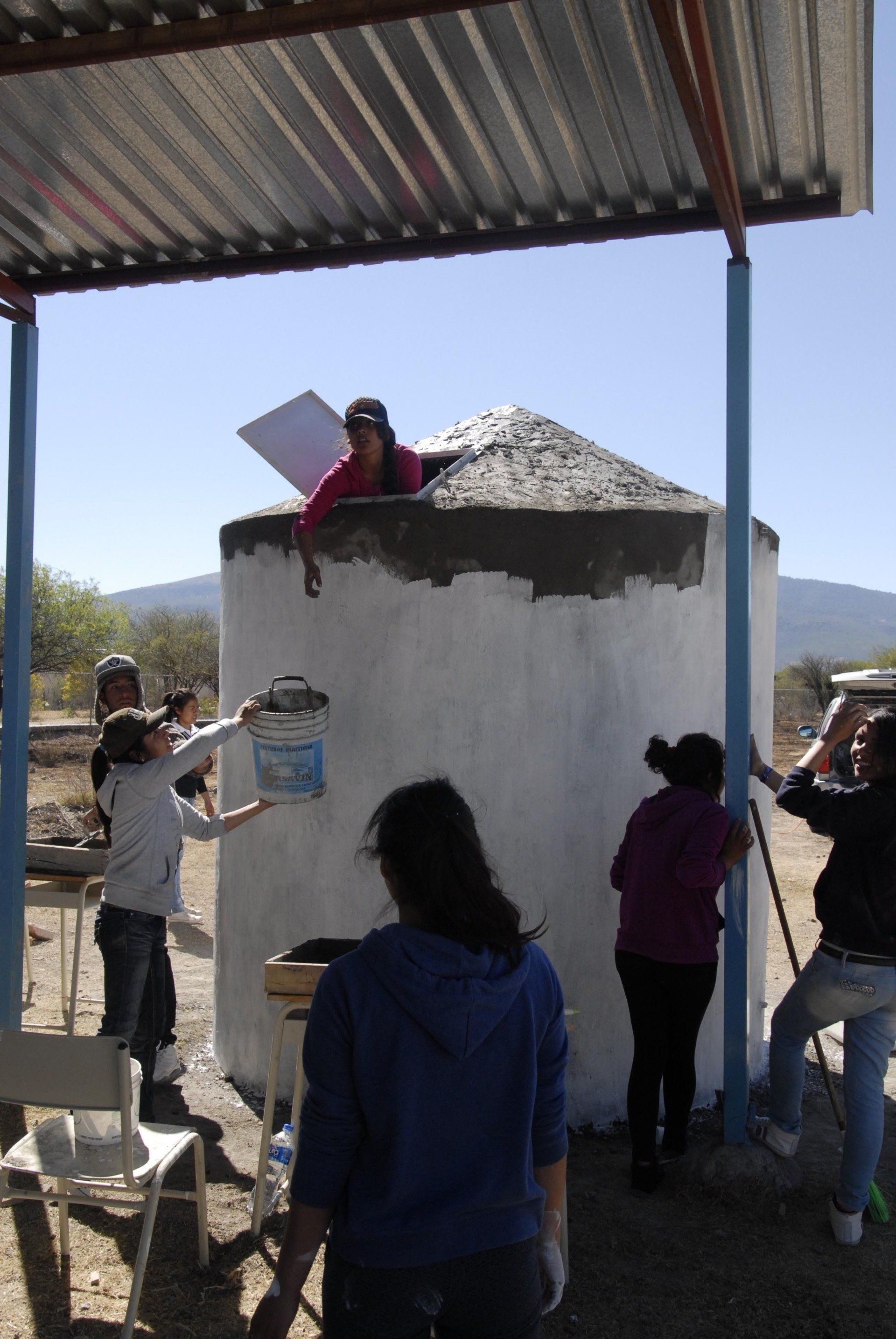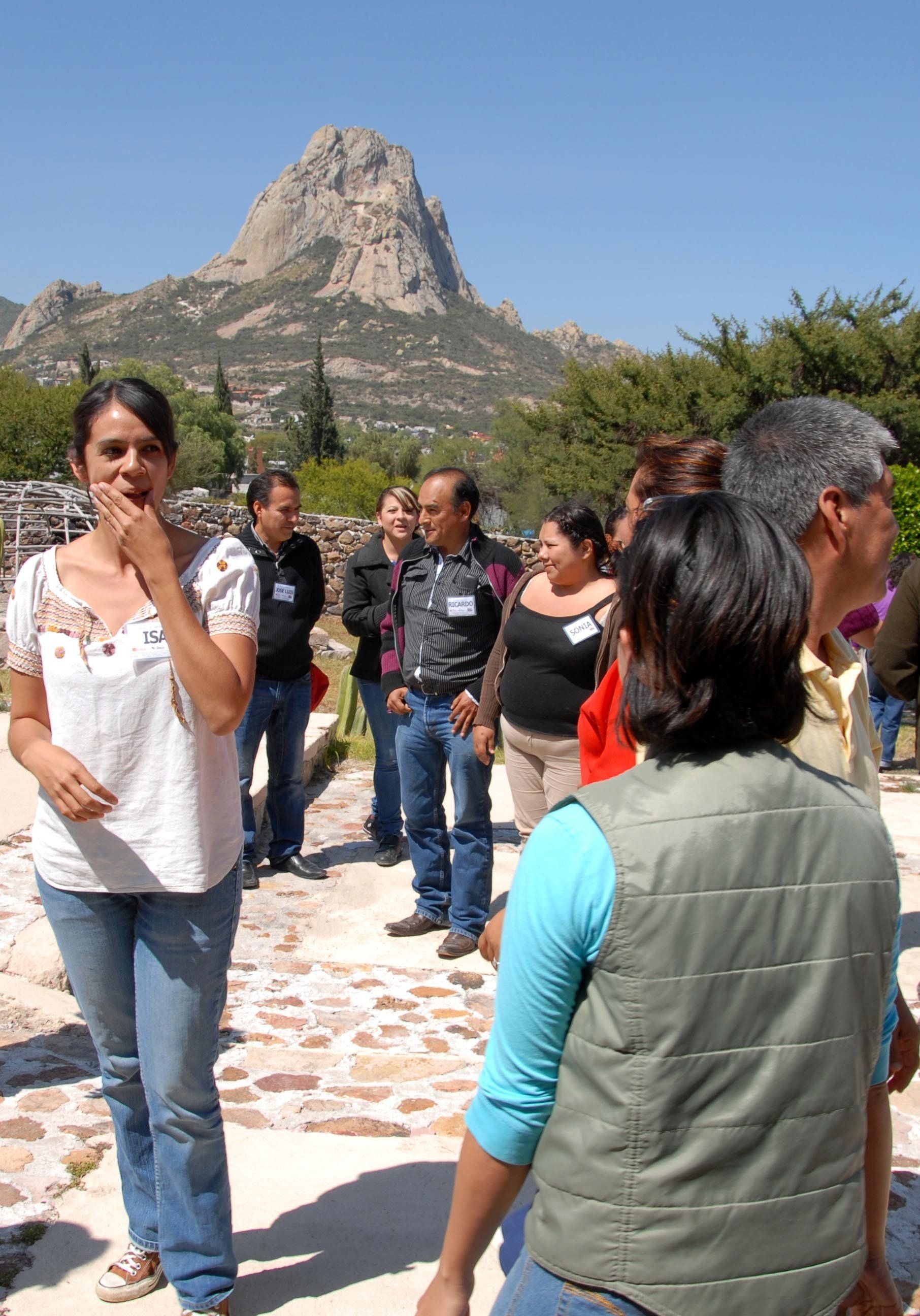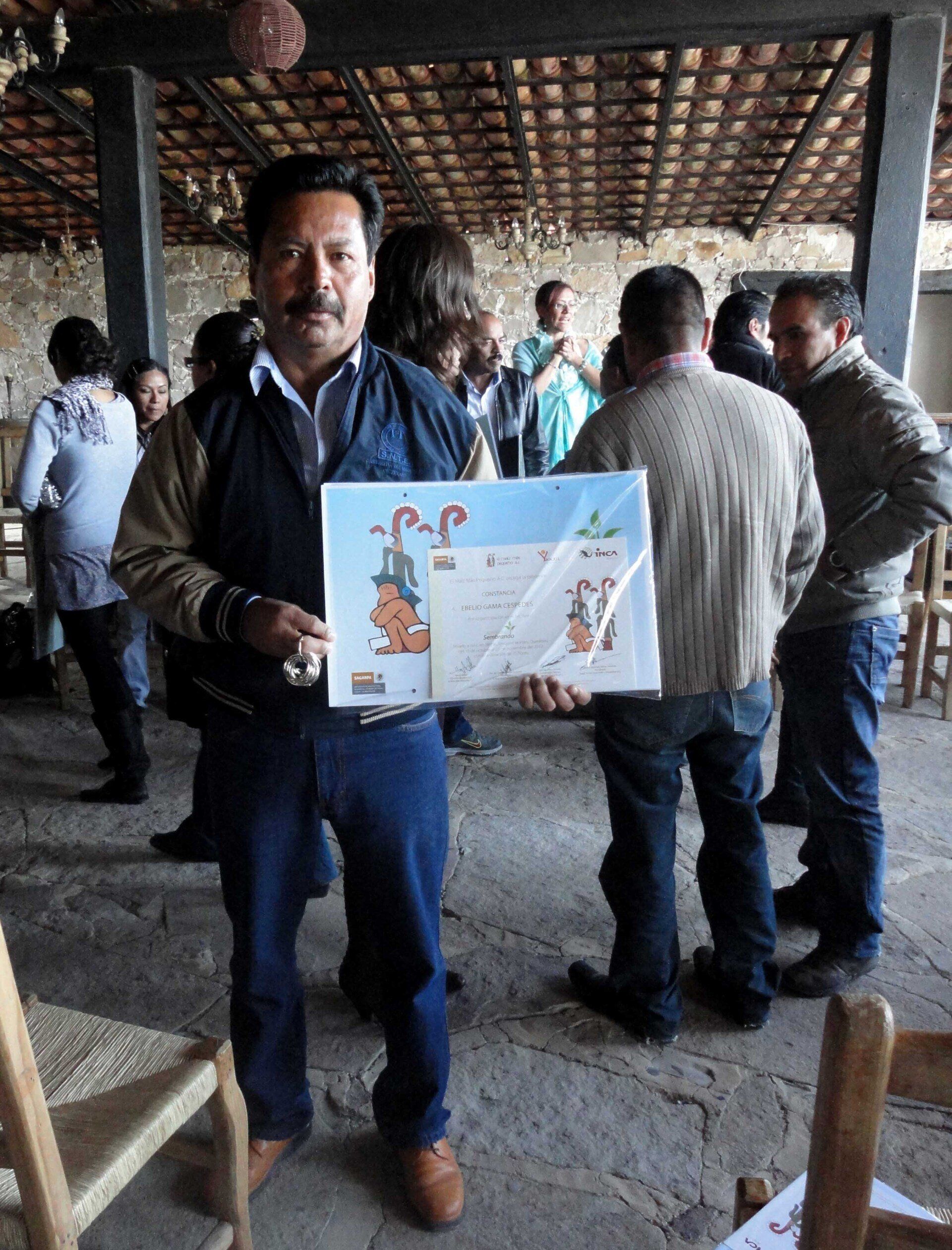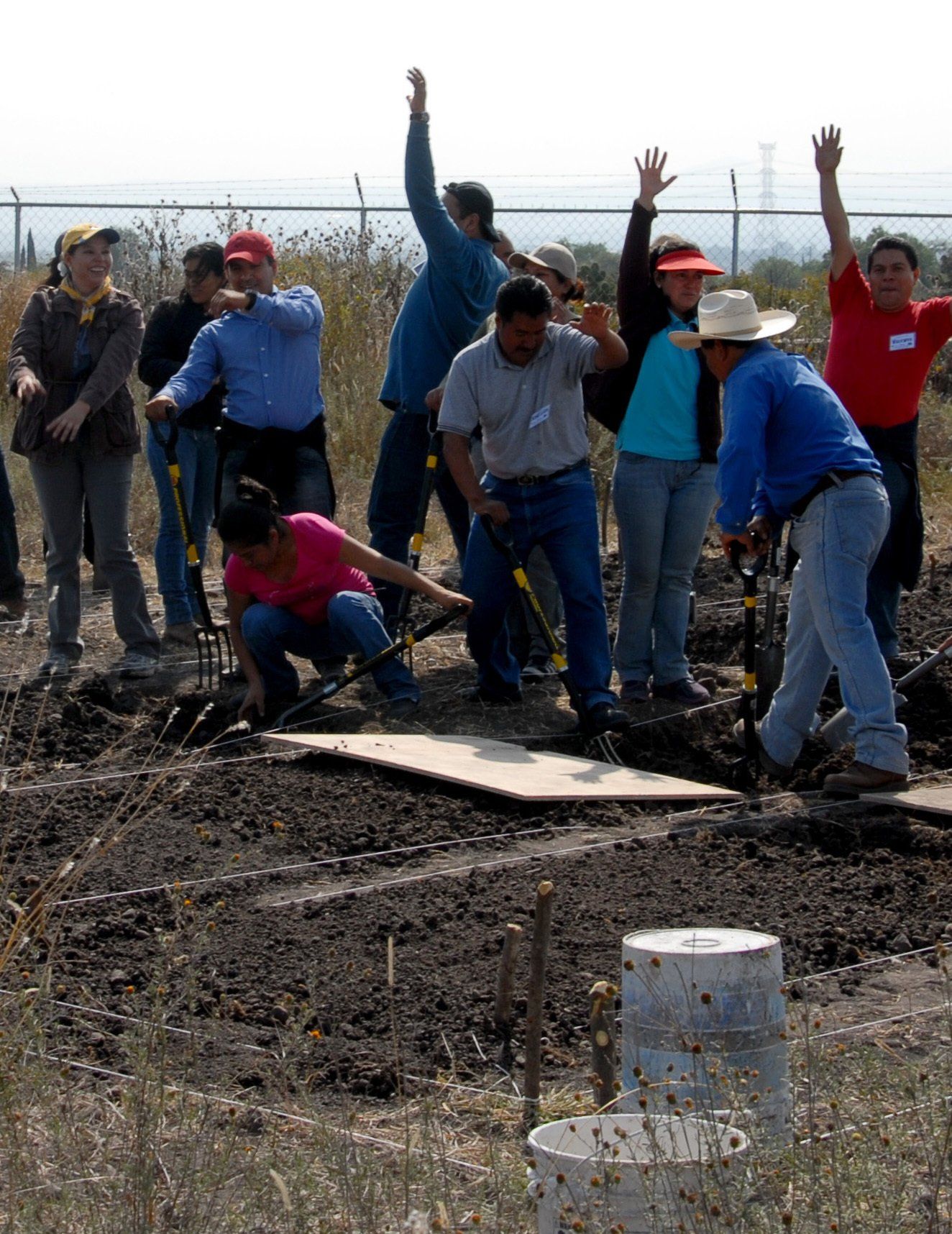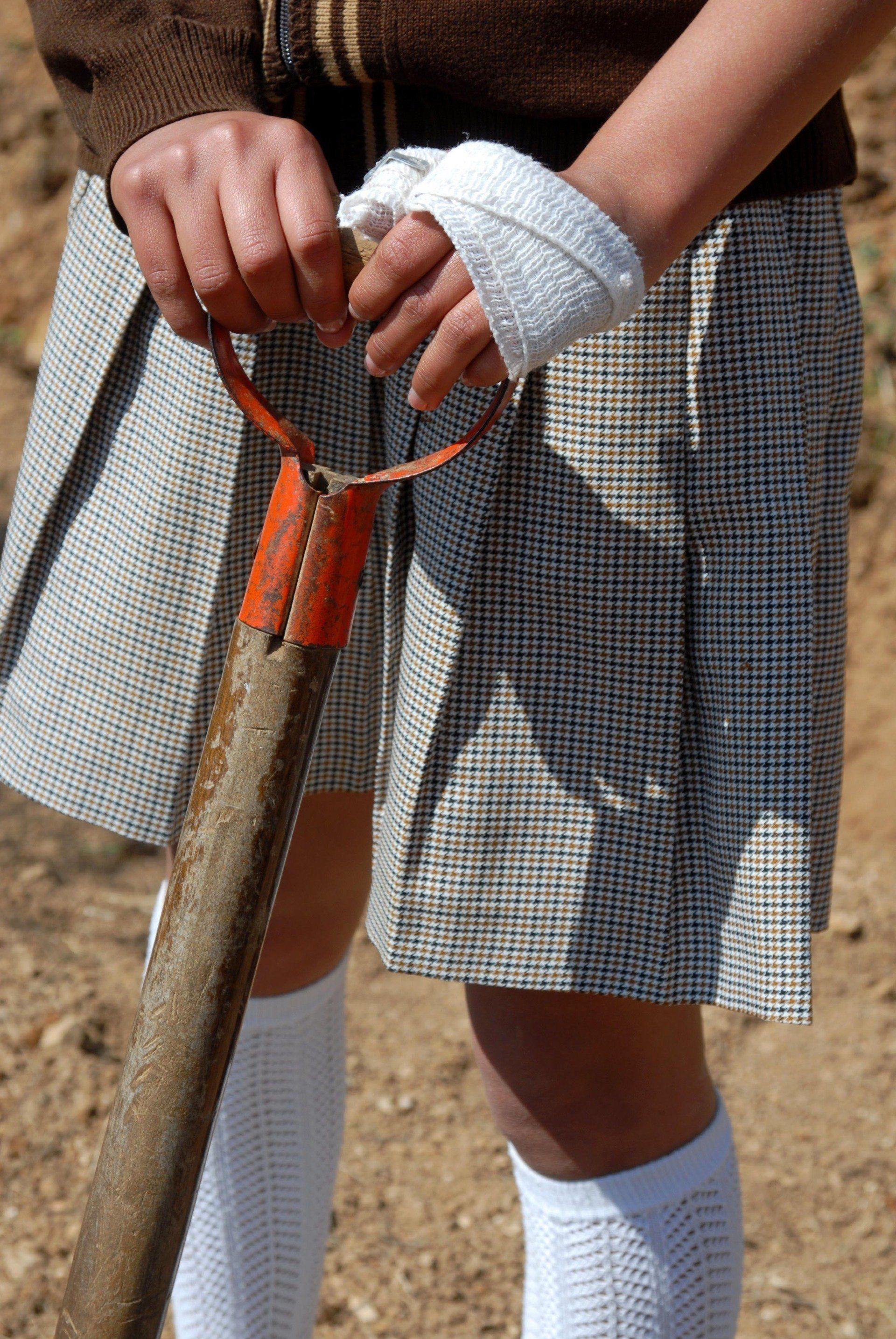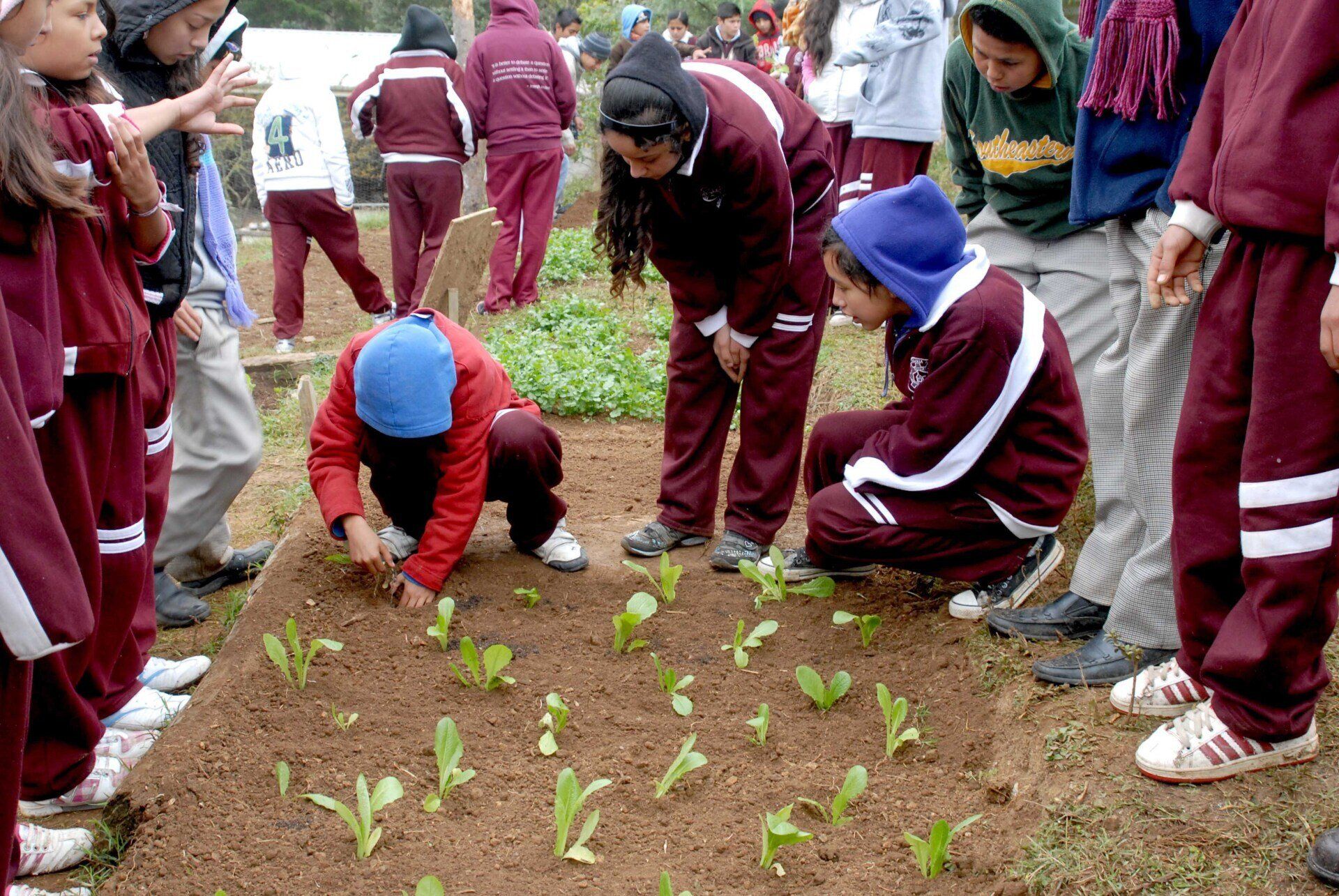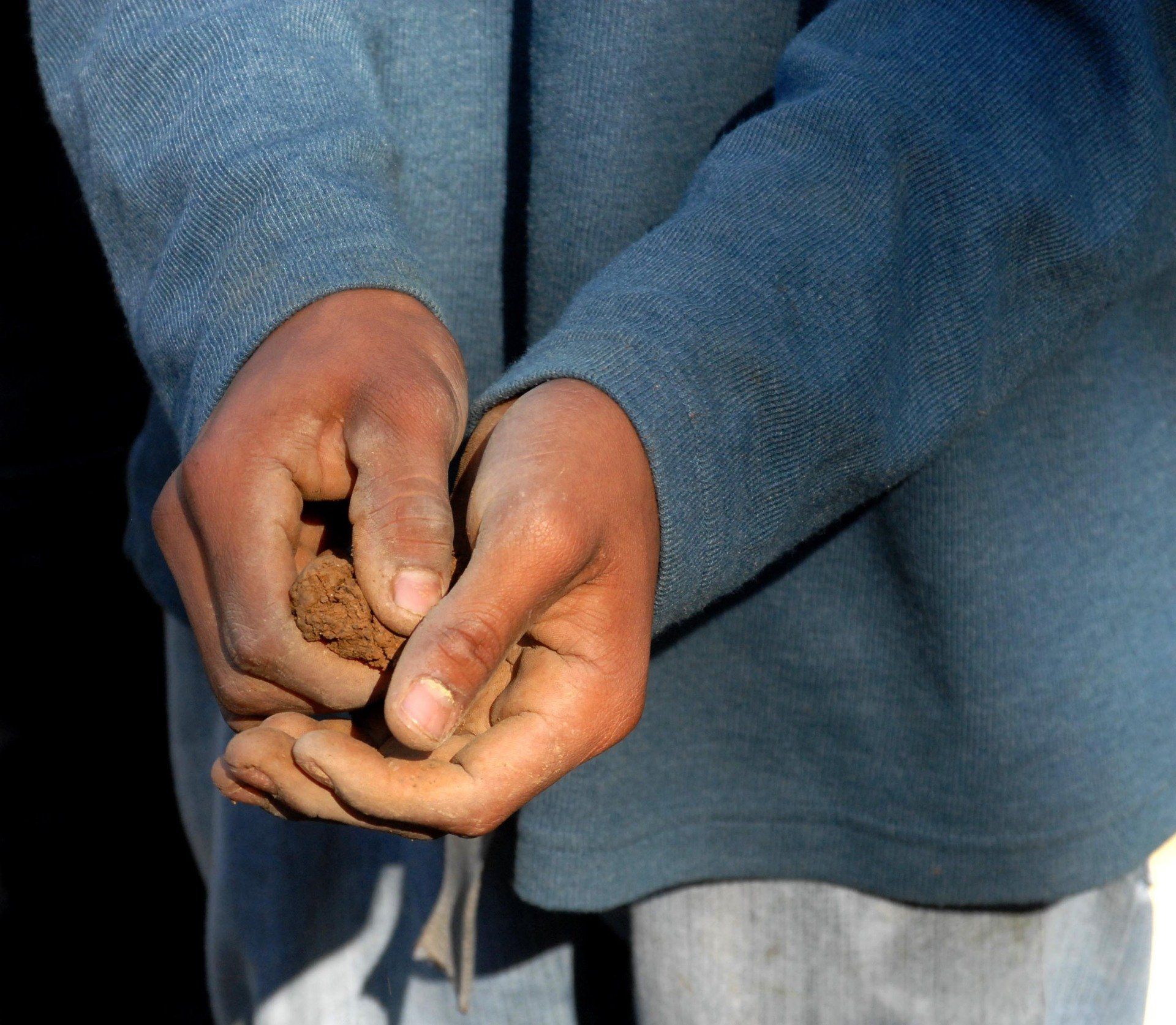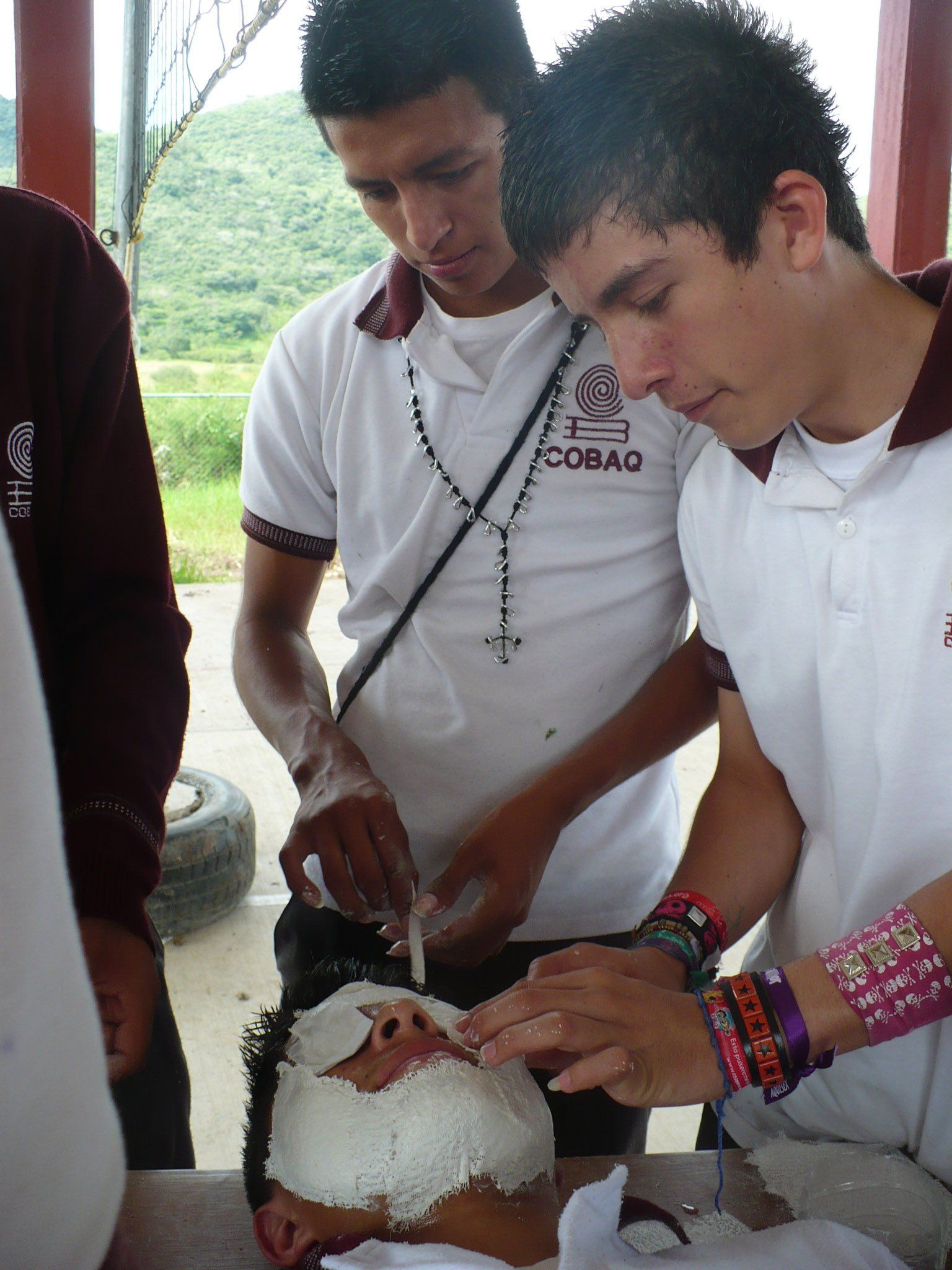Projects with youth and teachers
Sierra Gorda Project as a life project: Bucareli Experience
In December 2021, the civil association "El Maíz Más Pequeño" and the Community Support Center (CEACOM) of the Autonomous University of Querétaro joined the project of the National Commission of Natural Protected Areas (CONANP) for the meeting of the Network of Young people from the Sierra Gorda de Querétaro Biosphere Reserve (RBSG), the meeting was held from December 1 to 3 at the Bucareli Extremo ecotourism camp. The purpose of this meeting was for young people to develop a warm process of trust to encourage their ability to develop projects in favor of their community.
The training process began with the elaboration of the mural of values chosen by the group of young people and the design of a consensus regulation. Subsequently, the dynamics of the meeting were defined in which "we all learn from each other and the relationship with the territory". The concept of climate change and the Sierra Gorda Biosphere Reserve was incorporated into each of the participants as a way of life; they recognized problems and opportunities of the Reserve and related it to their life project. Each of the young people identified and understood the stages of a project; They also related this planning with the reflection on making a life project; They made a diagnosis of their community, used and interpreted maps detecting resources and problems, and finally presented the results of their diagnoses and projects.
In this way, it was possible to facilitate reflection processes in young people about their potential as inhabitants of the Sierra Gorda Biosphere Reserve and their role in it as responsible and committed inhabitants who identify the necessary components to find a livelihood in their territory. Currently, this Youth Network of the Sierra Gorda de Querétaro Biosphere Reserve is being strengthened with the interest that together they continue to innovate in proposals in favor of their territory as a way of life.
Educational Project: "July Wave"
The Wave of July was an initiative of the civil association El Maíz Más Pequeño that took place in San Miguel de Allende, Guanajuato since 2017 and was part of the project “Watersheds, People, Water and Climate Change, Adaptation processes in the Sub-Basin Támbula-Picachos in the Alto Río Laja”. The core idea of the "July Wave" project was to position young people as the generational change, whose practices would cause a change, not only for them as the main actors in the territory, but also with their families and communities. The general objective was to generate a process of self-knowledge and the environment that allows the participants to strengthen their decision-making capacity, individual and collective in favor of a BioSocial life project, that is, recognizing the environment and the community. .
Based on the conceptual principle of the “basin as a life system”, a knowledge process was generated aimed at making young people aware of their options, either those they had in mind or those they could create themselves. This process was aligned with the young people from the social service, which allowed it to be dynamic in the following points: knowledge was generated through themselves, their experiences, their self-knowledge and knowledge of their environment. The strategy that was promoted was to process the involvement and participation of young people in six integrating learning areas: population, maps, life system and identity.
To achieve this process, a set of activities were integrated, such as workshops, exhibitions, training, dynamics, where involvement was sought with attitudes of empathy that generated a climate of respect and freedom. This was supported by a group of facilitators-promoters, with experience in working with young people in different areas. In addition, as part of the Summer of Community Service, which we call Ola de Julio, the young people received training from the promoters and Caminos de Agua, AC to identify sample houses where, from the training they received, they were able to design and install collection systems. of rainwater and orchards for the production of food at the domestic level.
In July 2017, we started with our first Wave of July at the Advanced High School and Higher Education System (SABES) campus in the community of Cerritos, San Miguel de Allende, Guanajuato; our first experience made it easier for students of the social service to have an experience with qualities of generating awareness, empathy, love, solidarity, belonging, to enhance their development, growth and positive change in their lives for a Biosocial Good Living. Some of the feedback from teachers and students was that we encouraged them to focus on the goals that drive action and to really reflect their values, dreams and aspirations.
Given the success we had with the first Wave of July, the civil association "El Maíz Más Pequeño" decided to organize a second "Ola de Julio" in the month of July 2018 at the College of Scientific and Technological Studies of the State of Guanajuato ( CECYTEG). Similarly, the project involved male and female students to carry out their social service. In both processes, the commitment of the young people consisted of processing several stages of their formation: decision-making, population and demographics; maps for the identification of capacities, resources and risks and problems. Through workshops and training, students obtained specific information about their environment, with the intention of strengthening decision-making in favor of their personal project.
The organizations and groups that contributed with their knowledge and experiences were: Regional Watershed Training Center, Caminos de Agua, El Charco del Ingenio, Querétaro Transition Network, Vía Orgánica, Salvemos el Río Laja, Mezquital, El Mezquite, ECOSS.
Project Rainwater tanks SABES
During 2016 the technical team that makes up the Watersheds, People, Water and Climate Change Project, Adaptation Processes in the Sub-basin - Támbula Picachos in the Alto Río Laja under the coordination of the Civil Association El Maíz Más Pequeño began an education process with the students of the SABES Advanced High School and Higher Education System – Cerritos Plantel, San Miguel de Allende, Gto.
These educational activities sparked the initiative of a team of eight female students in the 6th semester, who decided to do research on the water conditions in the sub-basin and on the feasibility of building a cistern for harvesting rainwater in the town of Cerritos. Intensive training was given in the construction of Ferrocement cisterns for rainwater harvesting with resources from the Gonzalo Río Arronte Foundation, technical coordination of Saúl Juárez Cabrera (Technician, Caminos de Agua AC) and 42 students from the SABES Plantel Cerritos, who learned to build as a team a ferrocement cistern to capture rainwater and its subsequent use in the needs of the campus such as: irrigation of the garden, irrigation of compost, irrigation of trees and cleaning of rooms and bathrooms.
From this, the students of the last year of high school have conceived and executed various projects whose objective is the protection, preservation and management of the natural resources of the region they inhabit: the Támbula Picachos sub-basin.
See the following link:
https://www.youtube.com/watch?v=B5lM5rpvD2g&feature=youtu.be
Educational project
Learn by sowing
In 2012, the initiative was managed to design and pilot a program aimed at mothers and fathers of peasant families whose children were in their educational training project, seeking to strengthen the knowledge, attitudes and skills of teachers of basic education and high school in the state. of Querétaro, to promote the integration of sustainable agriculture in the face of climate change within their teaching activities, with the aim of replicating this initiative at the national level with producer families through adolescents as agents of change in their communities.
The activities that were promoted in "Aprender-Sembrando" was the promotion of the project in educational centers where human and technical training is integrated, the "Biointensive method for the cultivation of more food in less space" was included in the subjects and activities of teaching for the transfer of concepts to students; and the integration of parents for the replication of the project in homes. Prior to the start of the project, a diagnosis was made in two aspects; the first through documentary research on climate change, Biointensive method and sustainable agriculture; The second aspect of the diagnosis was carried out in the field in the municipalities of Jalpan de Serra and Landa de Matamoros, in the communities of Tilaco, Agua Zarca, La Lagunita, Agua Fría and Tres Lagunas, located in the Sierra Gorda of Querétaro. The work methodology consisted of interviews with the directors of each school, as well as focus groups with teachers and parents close to them.
The training strategy that was used was through a participatory and experiential course-workshop of 2 modules with a total of 48 hours. The format was a participatory workshop with coaching tools, through experiential techniques, sociodramas, visualizations, teamwork, discussion groups, collage, games, among others. Likewise, it was accompanied by technical training that consisted of integrating the "Biointensive" method to the subjects and teaching activities, this method is characterized by being a small-scale organic agriculture, with low inputs and high productivity, it is a way of cultivating the land in harmony with nature; This method has the ability to rebuild soil fertility, applying the following principles: double digging, use of compost, close planting, association and crop rotation, use of open pollinated seeds, carbon farming ( biomass) for compost and the cultivation of calories (human consumption).
Since its inception and to date, "Aprender-Sembrando" continues to strengthen and expand the educational platform as a strategy to increase the availability of food, uniting the efforts of teachers, students and parents in actions that favor food sovereignty, better health and education, and the co-creation of a productive generational change. This project has impacted more than 2,000 girls, boys and young people from preschool to middle-higher level, including parents, with the participation of the state institutions of the Unit of Basic Education Services of the State of Querétaro (USEBEQ) and the College of Bachelors of the State of Querétaro (COBAQ). "Learning-Sembrando" was financed by the Federal Ministry of Agriculture (SAGARPA), INCA Rural and the participation of the Ministry of Public Education of the State of Querétaro, in addition to the collaboration of Ecology and Population (ECOPOL) which was for the transfer of the biointensive cultivation method and YAAXIL AC was for the development of the human training methodology.
See the following links:
http://www.eluniversalqueretaro.mx/metropoli/16-02-2013/fomentan-agricultura-sustentable
http://www.sagarpa.gob.mx/Delegaciones/queretaro/boletines/2012/octubre/Documents/B0782012.pdf
Development project of a technological package for the implementation of the biointensive farming method in the Sierra Gorda of Queretaro 2010-2011
With funding from the Ministry of Agriculture (SAGARPA) and Fundación Produce Querétaro AC, El Maíz Más Pequeño developed a technological package for the implementation of the biointensive farming method in the Sierra Gorda of Querétaro, together with the elaboration of an action plan for the development of diets based on local/regional caloric intake. The objective was to rescue small cultivable spaces within communities and public schools that have the potential to become production areas. The initiative called for the participation of the National Council for Educational Development (CONAFE), the Service Unit for Basic Education in Querétaro (USEBEQ) and the Querétaro High School College (COBAQ), benefiting 747 students, teachers and producers. in 70 locations in the municipalities of Pinal de Amoles, Arroyo Seco, Landa de Matamoros and Jalpan de Serra.
Artistic expression workshops
The objective of the artistic expression workshops is to use art as a means to open spaces for participation and exchange of experiences, aspirations, knowledge and concerns between different generational groups (girls, boys, young people and adults) representing their communities and peoples. .
Through the elaboration of altarpieces, alfeñique, masks and cardboard structures, applying different techniques and materials, feelings and emotions that feed the good customs that are rooted in Mexican popular culture are identified and projected.
Creativity is also power. As part of our educational axis of action, the El Maíz Más Pequeño Civil Association promotes artistic expression as a tool to sensitize groups of different ages, guiding them through creative exploration towards the discovery of talents and other perspectives of the realities and contexts of everyday life. and thus promote personal and collective development.







